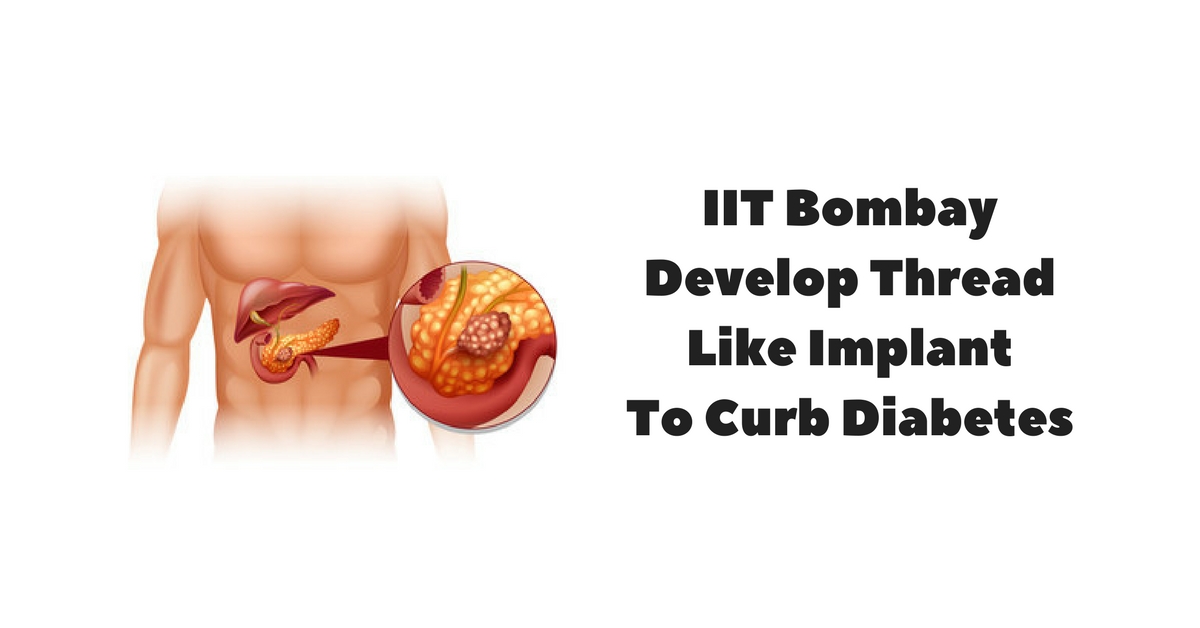New Hope For Diabetics: IIT-B Develops Implant That Can Control Blood Sugar!
With over 60 million adults in India suffering from diabetes, this thread like implant in pancreas will put an end to diabetic medication in the future.

Prof. Jayesh Bellare from the core faculty of Chemical Engineering department of IIT Bombay in 2008 started a very ambitious project to develop a bio-artificial pancreas that can be implanted into the body to help to combat diabetes.
The problem they faced was that bio-artificial implantations like these were rejected by the body as these “foreign objects” will trigger an immune response, causing the immune system to attack the pancreas itself.
To overcome the problem, the researcher made these patented hollow fibre membranes using a polymer called polysulfone. “The hollow fibre membrane is a narrow tube about 1 mm in diameter with pores in the wall,” explains Prof. Jayesh Bellare to Research Matters.
“The advantage of our hollow fibre membrane is that it supports the cells to grow by mimicking the extracellular matrix in which the cells naturally grow, and simultaneously, allows insulin to reach the patient while preventing an immune reaction from cells if they are of foreign origin,” adds Prof. Bellare.

This membrane is as thin as a thread and can sit on or near the pancreas later, activating itself and secreting insulin. The hollow membrane hosts pancreatic cells that secrete insulin through its permeable walls.
The researchers have tested the device with both human stem cells derived from the umbilical cord, as well as islet cells from pig pancreas. “For the first time, we have successfully encapsulated human stem cells, and porcine cells in our novel and patented material,” states Prof. Bellare.
These implants were placed for 30 days in diabetic mice, and no abnormalities were found. Significantly, blood vessels were seen growing on the cells of the implants, suggesting that the immune system accepted the implant.
Over the past decade, diabetes has become a universal problem and India alone is home to over 60 million adults with diabetes. Diabetic patients, especially type 1 patients, suffer from the inability to produce insulin. Type 1 diabetes is also commonly seen in children.
The developed technology can bid goodbye to conventional diabetic pills and insulin. The one-time operation could solve the epidemic of diabetes. But the ten-year research is only the beginning. From carrying out long-term tests in mice to successful human trials, this technology can prove to be a gateway for many similar implants.
(Edited by Shruti Singhal)
Hey, You May Also Like: Diabetes Breakthrough? This Mobile App Could Help Hundreds of Indian Patients
Like this story? Or have something to share?
Write to us: [email protected]
Connect with us on Facebook and Twitter.
NEW: Click here to get positive news on WhatsApp!
If you found our stories insightful, informative, or even just enjoyable, we invite you to consider making a voluntary payment to support the work we do at The Better India. Your contribution helps us continue producing quality content that educates, inspires, and drives positive change.
Choose one of the payment options below for your contribution-
By paying for the stories you value, you directly contribute to sustaining our efforts focused on making a difference in the world. Together, let’s ensure that impactful stories continue to be told and shared, enriching lives and communities alike.
Thank you for your support. Here are some frequently asked questions you might find helpful to know why you are contributing?


This story made me
-
97
-
121
-
89
-
167











